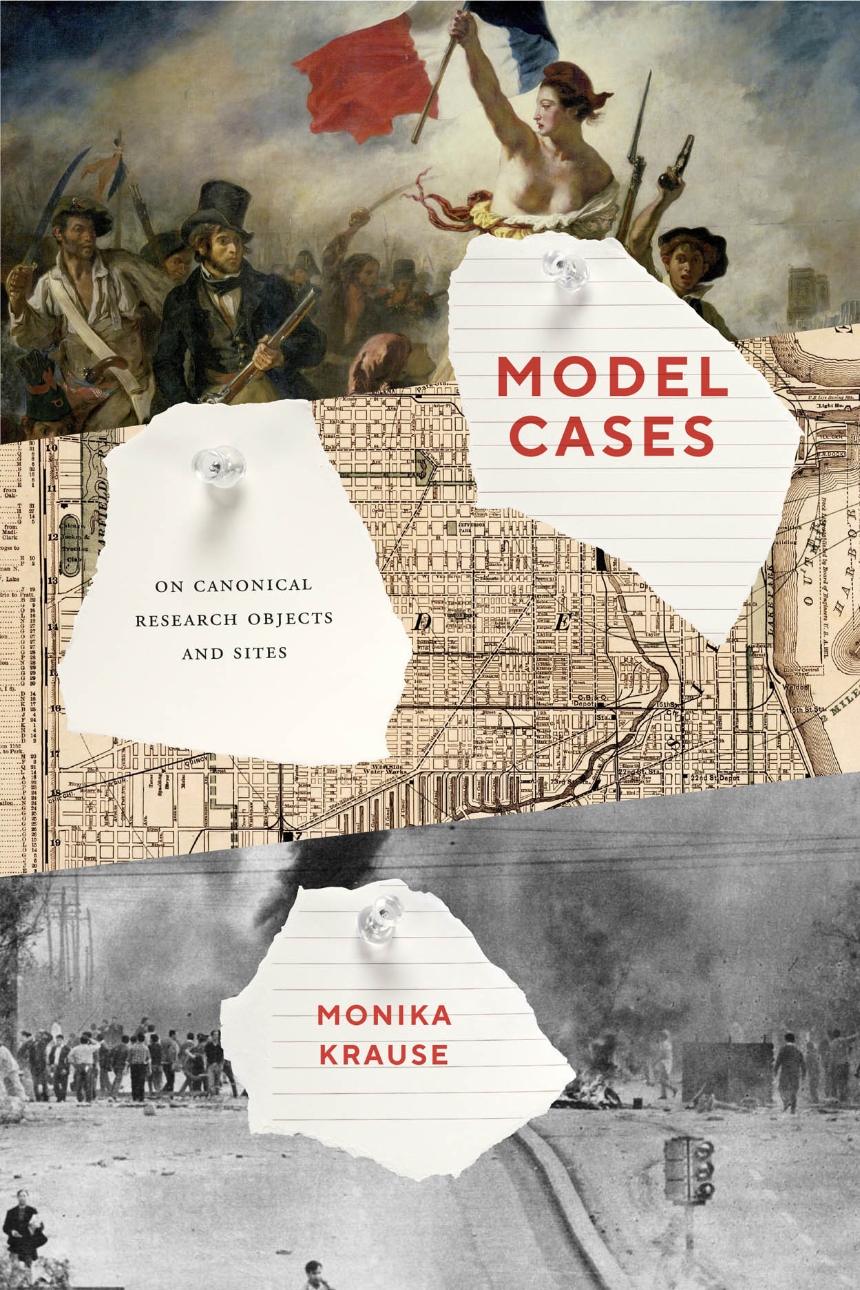Model Cases
On Canonical Research Objects and Sites
In Model Cases, Monika Krause asks about the concrete material research objects behind shared conversations about classes of objects, periods, and regions in the social sciences and humanities. It is well known that biologists focus on particular organisms, such as mice, fruit flies, or particular viruses when they study general questions about life, development, and disease. Krause shows that scholars in the social sciences and humanities also draw on some cases more than others, selecting research objects influenced by a range of ideological but also mundane factors, such as convenience, historicist ideas about development over time, schemas in the general population, and schemas particular to specific scholarly communities.
Some research objects are studied repeatedly and shape our understanding of more general ideas in disproportionate ways: The French Revolution has profoundly influenced our concepts of revolution, of citizenship, and of political modernity, just like studies of doctors have set the agenda for research on the professions. Based on an extensive analysis of the role of model cases in different fields, Krause argues that they can be useful for scholarly communities if they are acknowledged and reflected as particular objects; she also highlights the importance of research strategies based on neglected research objects and neglected combinations of research objects and scholarly concerns.
224 pages | 8 tables | 6 x 9 | © 2021
Sociology: General Sociology, Theory and Sociology of Knowledge
Reviews
Table of Contents
1. Material Research Objects and Privileged Material Research Objects
2. How Material Research Objects Are Selected
3. Model Cases and the Dream of Collective Methods
4. How Subfield Categories Shape Knowledge
5. The Schemas of Social Theory
6. The Model Cases of Global Knowledge
Conclusion
Acknowledgments
Notes
Bibliography
Index
